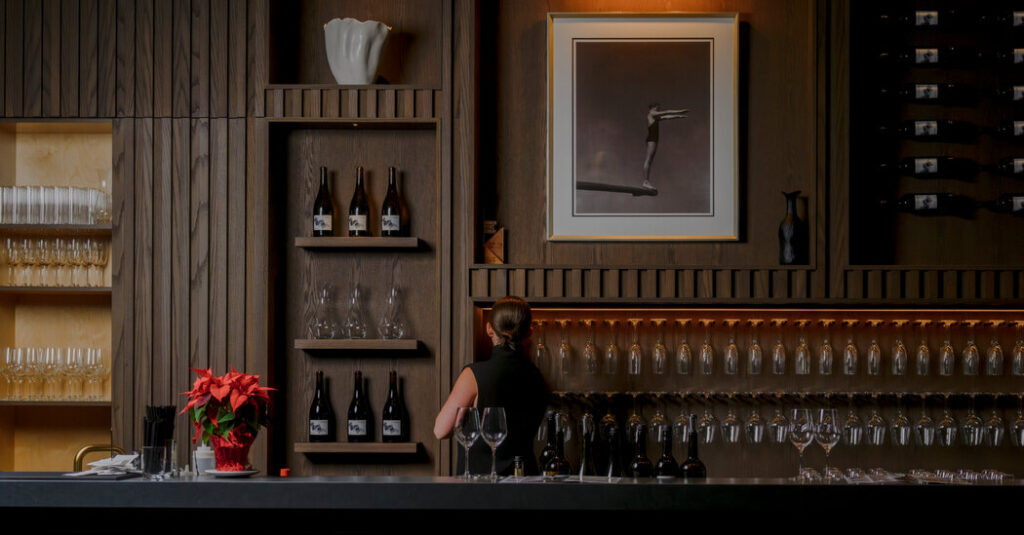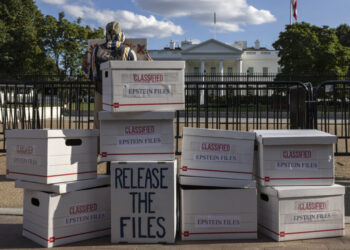In September, L’Abattoir, an upscale restaurant in Vancouver, British Columbia, had a problem: It was running out of French Muscat wine, the perfect pairing for the scallop crudo on the tasting menu.
In fact, it was running out of all of the French and Italian options on its wine list, after a labor strike that halted wholesale alcohol distribution in the province, as well as tariffs and bans that had all but eliminated U.S. wine imports.
Peter Van de Reep, now the restaurant’s head sommelier, had to get creative as he searched for the right tart wine with enough fruit. After considering six or seven options, he landed on a Pinot Grigio from Salt Spring Island in British Columbia.
“It’s a Goldilocks wine — it’s just right for that dish,” Mr. Van de Reep said, adding, “This is a winery most people have no idea about.”
The experience at L’Abattoir reflects something that has been playing out across British Columbia in recent months. The strike of some 34,000 public service workers represented by the province’s General Employees’ Union essentially shut down liquor distribution for eight weeks.
That came months after the United States imposed duties on Canadian imports, prompting Canada to adopt retaliatory levies on U.S. imports. Some Canadian provinces put in place outright bans on the sale of American beer, wine and liquor. U.S. exports of wine to Canada dropped 91 percent in the three-month period from March to July compared with the year before, according to the Wine Institute, an advocacy group that represents California wineries. The United States has a rare wine trade deficit with Canada, causing the most significant market disruption in decades, experts say.
And there is another side: Amid U.S. tariffs that now stand at 35 percent (there are exceptions for some goods covered by a trade deal President Trump brokered in his first term), and comments by Mr. Trump that many Canadians find disparaging, many would rather support their own country’s wine industry. Wine growers and distributors hope that restaurants and customers will keep making the choice to buy Canadian.
“This is a once-in-a-lifetime opportunity to try and capture market share from your competitors,” said Jeff Guignard, the chief executive of Wine Growers British Columbia, a trade association. He added, “Pushback against this political rhetoric has led to a strong ‘Buy B.C., Buy Canadian’ movement.”
At L’Abattoir, the wine menu will continue to focus on Canadian options for now, despite the strike coming to an end.
In recent months, local wines have come to represent more than half of the restaurant’s by-the-glass offerings, compared to about a quarter earlier in the year. Four of the five pairings on the chef’s tasting menu are now British Columbian wines.
“I’ve actually had a lot of fun showing people wineries they would never try before,” Mr. Van de Reep, the sommelier, said. “They’re like, ‘Wow, this is really impressive.’”
At the restaurant’s bar on a rainy Friday evening, Corinne and Trevor Lovelace were drinking Pinot Gris from the Okanagan Valley.
“B.C. makes some wicked wines,” Mr. Lovelace, 58, said. “We support it as much as we can.”
“Canada really stands up for itself,” Ms. Lovelace, 53, said, describing a recent swell of national pride and boycotts of U.S. products that has become known as the “elbows up” movement, a reference to a posture used in hockey.
Vineyards say they have seen a boost.
When Chris Turyk started Unsworth Vineyards on Vancouver Island with his parents in 2009, they didn’t have much luck distributing the “fiercely acidic” wine in the Victoria area, he said. Since then, local sales have steadily increased, but this year was a significant change, he said: “There were cases of wine going to random liquor stores that haven’t answered my calls in five years.”
Sales of British Columbian wine were up 6 percent from April to June, according to a quarterly report by the B.C. Liquor Distribution Branch, and up 1.6 percent from July to September. But the largest market share increases went to wines from Argentina and Australia.
The climate variation of British Columbia has allowed for the production of sparkling wine, chardonnay, Riesling, Cabernet Franc, merlot and Syrah, Mr. Van de Reep said, and the acreage of vineyards has been increasing since the 1980s. He said Riesling in particular was where British Columbian wines “play on the world stage.”
Wine production in Canada is a small industry dispersed across a large country, with wine regions in British Columbia, Ontario, Nova Scotia and Quebec. Each is wrestling with threats including climate change, winter freezes, wildfires, tariffs, interprovincial trade barriers and even bears, which can eat and otherwise damage several acres of grapes in a single night.
There has been a “significant uptick” in sales of Ontario wines, said Aaron Dobbin, the chief executive of Wine Growers Ontario. But “it’s coming at a time that’s very difficult for people here in the province,” he said.
Wine sales are generally down globally, as consumers are drinking less or seeking low-alcohol varieties. Vineyards that produce wine to meet that demand are benefiting.
Cannon Estate Winery has reported a 66 percent increase in wholesale sales so far this year, said Jacob Medeiros, the vineyard’s winemaker, and that number could reach 75 percent or more by year’s end, he said.
When Justin and Andi Manuel bought the land for the winery in the Fraser Valley and started producing wine in 2017, they wanted to bring winemaking closer to home in Abbotsford, a city east of Vancouver.
Many told them it wouldn’t work, the Manuels said, but they began selling their first vintage in November of 2022 and this April had their first wine accepted into the B.C. Liquor Distribution Branch, which oversees nearly 200 government-run liquor stores in British Columbia, shortly after the U.S. wine ban went into effect.
When it happened, “I actually had a few guys from the Okanagan, big wineries, text me and say, ‘Wow that was quick,’” Mr. Manuel said, referring to the province’s largest and most recognizable wine region.
In May, customers who could no longer find American wines began visiting Cannon Estate, Mr. Medeiros, the vineyard’s winemaker, said. “They came in with this prejudice to Canadian wines being inferior, and they were presently surprised,” he said, adding, “It was a win-win for everybody.”
Mr. Turyk said it was a moment for Canadian wineries to find “a new lifelong supporter, especially with wine drinkers,” who appreciate that wine is rooted in time and place, and have strong brand loyalties.
“You might be their new brand,” he said.
Lauren McCarthy is a reporter on the Investigations team at The Times. She has also covered breaking news and other topics.
The post Tariffs and Strike Drive ‘Once-in-a-Lifetime’ Boost for Canadian Wine appeared first on New York Times.




